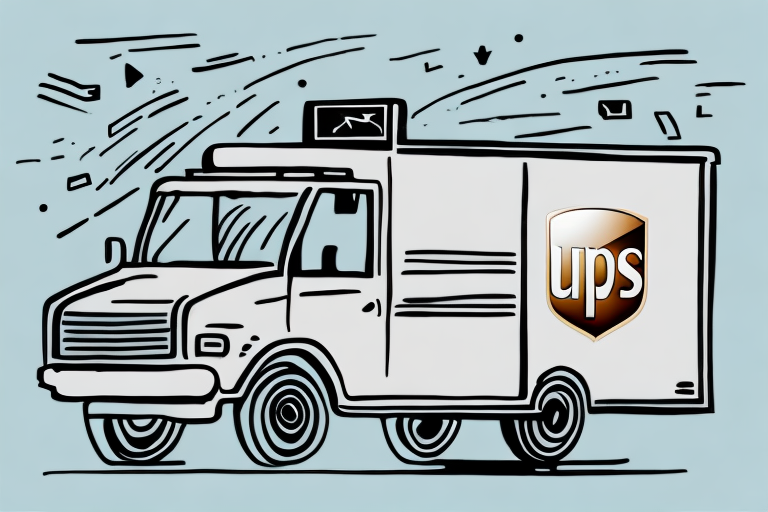What Does UPS Insurance Cover? A Comprehensive Guide
If you’re a business owner or someone who frequently ships packages through UPS, it’s important to know what UPS insurance covers and how it works. In this comprehensive guide, we’ll cover everything from the types of insurance coverage available to how to calculate your insurance costs, file a claim, and compare UPS insurance to other shipping carriers. So, let’s dive in and get started!
Understanding UPS Insurance: An Introduction
UPS insurance is a service provided by United Parcel Service (UPS) that covers the value of your shipped items in case of loss or damage during transit. This insurance is optional and offers a level of protection for your packages that is beyond the standard liability coverage that carriers are required to provide. While UPS takes great care in handling packages, accidents can still sometimes happen, which is why many people opt to purchase insurance to protect their shipments.
It is important to note that UPS insurance has certain limitations and exclusions. For example, it may not cover items that are prohibited or restricted by law, such as hazardous materials or illegal substances. Additionally, certain high-value items may require additional documentation or special handling, which can affect the cost and availability of insurance coverage. It is recommended that you carefully review the terms and conditions of UPS insurance before making a decision to purchase it, and consider alternative options such as self-insuring or using a third-party insurance provider.
Types of UPS Insurance Coverage Available
There are several types of UPS insurance coverage available to choose from. The type of coverage that’s best for you will depend on the value of the items you’re shipping and how much protection you’re looking for:
- Basic Liability Coverage
- Additional Coverage for High-Value Items
It’s important to note that UPS insurance coverage does not cover certain items, such as cash, jewelry, and antiques. If you’re shipping these types of items, you may need to purchase additional insurance coverage from a third-party provider. Additionally, UPS may require you to provide proof of the item’s value, such as a receipt or appraisal, in order to receive coverage. It’s always a good idea to carefully read the terms and conditions of any insurance coverage you purchase to ensure that you’re fully protected.
How to Calculate UPS Insurance Costs
The cost of UPS insurance is based on several factors, including the declared value of your shipment, the type of items you’re shipping, and the type of coverage you choose. To calculate your insurance costs, you can use UPS’s online shipping calculator, which will give you an estimate based on your package’s weight, dimensions, and destination. Keep in mind that the cost of insurance will increase as the value of your shipment increases.
It’s important to note that UPS offers different types of insurance coverage, including basic liability coverage and additional coverage options for high-value items. Basic liability coverage is automatically included in your shipment, but it may not cover the full value of your items. If you’re shipping high-value items, it’s recommended that you consider purchasing additional coverage to ensure that you’re fully protected in case of loss or damage during transit.
Factors That Affect Your UPS Insurance Premiums
There are several factors that can affect the price of your UPS insurance premiums, including:
- Declared value of the shipment
- Type of items being shipped
- Mode of transportation (e.g., air vs. ground)
- Destination of the shipment
Another factor that can affect your UPS insurance premiums is the mode of transportation you choose. If you opt for air transportation, your insurance premiums may be higher due to the increased risk of damage or loss during transit. On the other hand, if you choose ground transportation, your insurance premiums may be lower as the risk of damage or loss is relatively lower.
How to File a UPS Insurance Claim
If your package is lost or damaged during transit, you can file a UPS insurance claim to be reimbursed for the value of your shipment. To file a claim, you’ll need to provide the following information:
- Tracking number
- Proof of value (e.g., receipt, invoice)
- Description of the damage or loss
You can file a claim online through the UPS website or by calling the UPS customer service hotline.
It’s important to note that there are certain restrictions and limitations to UPS insurance claims. For example, UPS may not cover certain types of items, such as antiques or fragile items, or may have limits on the amount of coverage available. Additionally, UPS may require additional documentation or proof of loss for certain types of claims. It’s important to review UPS’s insurance policy and guidelines before shipping valuable items to ensure that you have adequate coverage and understand the claims process.
Common Exclusions in UPS Insurance Coverage
While UPS insurance offers a level of protection for your shipments, there are some common exclusions that you should be aware of. UPS insurance does not cover the following:
- Cash
- Jewelry
- Antiques
- Other valuable items
It is important to note that UPS insurance coverage is limited to the declared value of the package. This means that if the actual value of the package exceeds the declared value, you may not be fully reimbursed for any loss or damage. Additionally, UPS insurance does not cover any indirect or consequential damages, such as lost profits or business interruption.
While UPS offers insurance coverage for most types of shipments, there are some items that are not eligible for coverage. These include cash, jewelry, and other valuable items. If you need to ship these types of items, it is recommended that you use a different shipping method or purchase additional insurance coverage from a third-party provider.
Additional Options for Shipping Insurance beyond UPS
While UPS insurance is a popular and reliable option for many shippers, there are other options available for those who want to compare coverage and prices. Some other popular shipping insurance providers include:
- FedEx
- USPS
- Third-party insurance providers
It is important to note that when choosing a shipping insurance provider, you should carefully review the terms and conditions of the policy to ensure that it meets your specific needs. Some policies may have exclusions or limitations that could impact your coverage in certain situations.
In addition to insurance coverage, many shipping providers also offer package tracking and delivery confirmation services. These services can provide peace of mind and help you keep track of your shipments throughout the delivery process.
Tips for Choosing the Right Shipping Insurance for Your Business
When it comes to choosing the right shipping insurance for your business, there are several factors to consider:
- Value of the items being shipped
- Type of items (e.g., fragile, hazardous)
- Mode of transportation
- Destination of the shipment
- Cost of insurance premiums
- Reputation and reliability of the insurance provider
- Customer service and claims process
Another important factor to consider when choosing shipping insurance is the type of items you are shipping. Some insurance policies may have exclusions or limitations on certain types of items, such as fragile or hazardous materials. Make sure to read the policy carefully and ask questions to ensure that your shipments are fully covered. Additionally, consider the reputation and reliability of the insurance provider, as well as their customer service and claims process, to ensure that you have a positive experience in the event that you need to file a claim.
Comparing UPS Insurance to Other Shipping Carriers
While UPS insurance is a popular option for many shippers, it’s important to compare the coverage and pricing offered by other shipping carriers as well. FedEx and USPS both offer similar insurance policies, and there are many third-party insurance providers to choose from as well. Be sure to compare prices, coverage limits, and exclusions to find the insurance policy that’s right for your business.
Overall, UPS insurance is a valuable tool for anyone who frequently ships packages and wants to protect their shipments from loss or damage. By understanding the types of coverage available, calculating your insurance costs, and filing claims when necessary, you can ensure that your shipments are well-protected during transit.
One important factor to consider when comparing UPS insurance to other shipping carriers is the ease of filing claims. While all carriers offer insurance, the process of filing a claim can vary greatly. UPS has a user-friendly online claims process that allows shippers to easily submit claims and track their progress. On the other hand, some carriers may require more paperwork or have longer processing times, which can be frustrating for shippers.
Another consideration when choosing an insurance provider is the level of customer support offered. UPS has a dedicated customer service team that can assist shippers with any questions or concerns they may have about their insurance policy. This level of support can be especially helpful for small business owners who may not have the resources to handle insurance issues on their own.



















